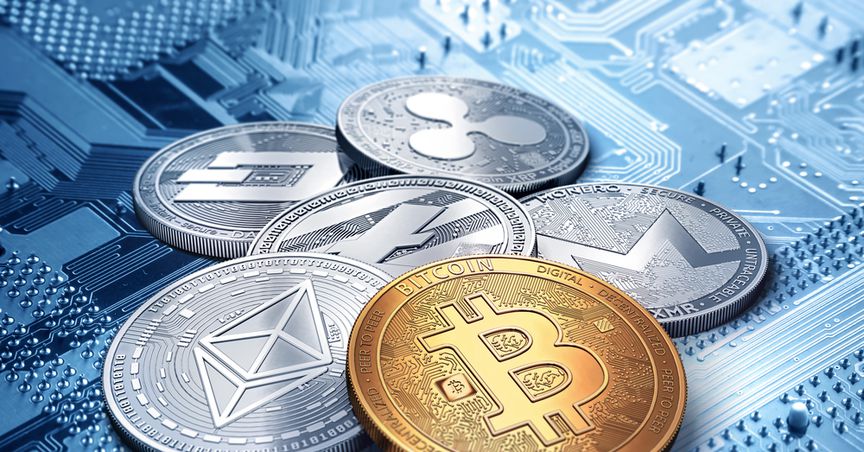Summary
- After Britain’s recent crackdown on Binance, many UK banks and payment providers are also taking actions against the crypto exchange.
- As per FCA regulations, leverage limits are being set up by crypto exchanges.
- Due to increasing regulatory scrutiny and global pressure, Binance has winded up its derivative business across Europe.
With the growing crackdown on crypto market across the globe, the UK’s Financial Conduct Authority (FCA) recently in June announced a crackdown on Binance, which is the world’s largest crypto exchange by trading volumes. The UK regulator stated that Binance is not permitted to undertake any regulated activity in the country without its prior consent, as it didn’t meet the anti-money laundering requirements. From 30 June, it has an obligation to notify its users about the FCA restrictions via its apps and website.
But the scope of the ban was limited as only the UK entity of the larger Binance Group Corporation, Binance Markets Limited (BML) was targeted, which is a separate legal entity and doesn’t offer its services on the Binance website. Also, non-registered firms may still interact with the customers in the UK as the ban is only on the regulated services, which means that the trading on Binance website won’t be directly affected. Proving accessibility to cryptocurrencies doesn’t fall in the regulated activities, but offering derivatives does, which is what the FCA is targeting. In addition to the UK, countries like Japan and China are also clamping down on the crypto industry for the same reason and are intervening in the crypto markets by increasing regulatory scrutiny. Bitcoin, Dogecoin and Ethereum prices started falling when the Chinese government on 21 June announced that it will clamp down on crypto mining. South Korea also seized crypto assets worth US $47 million of 12,000 citizens accused of tax evasion.
This crackdown has led to issues with the UK’s Faster Payments system, which in turn has restricted customers from sending payments to the crypto exchange. Although the ban has proven to be a boon for its rivals, like Bitstamp has seen a customer growth of 138% since 25 June when the FCA restrictions on Binance were announced. Kraken, which is an exchange based in the US, and FCA-registered crypto asset firm Gemini have also benefited from the same.
After the FCA restrictions on Binance and ban on its UK arm, BML, banks and payment providers in the UK, such as HSBC and Barclays, are also taking actions in alignment with it. On 5 July, the Barclays announced that for safety of the UK customers who have made payment to Binance earlier, it had blocked payments to the platform until further notice. But it didn’t mean that customers can’t withdraw funds from Binance.
In mid-July, payment provider Clear Junction announced that it would withdraw its support to GBP and EUR payments to Binance, leaving customers unable to withdraw the same from their Binance accounts. On 2 August, HSBC also stated that it is withdrawing its support to payments to Binance. But the users are still allowed to purchase cryptocurrencies with GBP through their credit/debit cards on Binance. After many UK banks blacklisted the exchange, Spanish banking giant Banco Santander SA also restricted the payments to Binance for its UK customers. To this, Binance responded that it takes their compliance regulations very seriously and are committed to work in collaboration with regulators to move the industry forward.
Bitcoin, Ethereum, and other cryptocurrencies are unregulated, but the FCA regulates cryptoasset derivatives, which rather than actually purchasing the cryptocurrency, bet on its future price movements, such as futures contracts and contracts for difference (CFDs). Unlike derivatives trading, cryptocurrency spot trading is still majorly unregulated. On 30 July, Binance announced that it would wind up its futures and derivatives business across Europe, as regulatory scrutiny gradually increased across the globe, immediately restricting its users in some of the European countries, like Germany, Italy, and the Netherlands, from opening new futures or derivatives offerings on the platform. This was a proactive step taken by Binance to align itself with the industry regulations.
How do changes in crypto exchanges affect the Bitcoin price?
Recently on 25 July, cryptocurrency prices spiked up because of a rumor that Amazon would be accepting Bitcoin for payments. Some traders borrowed up to 125 times their initial invested collateral with leveraging, which later led to wiping out of most of the trade positions. After this, crypto and derivatives exchange, FTX, reduced its leverage limits from 125 times to 20 times of the original deposit. This was followed by Binance making the same announcement of limiting leverage to maximum 20 times. Although leveraged trading, or margin trading, is quite beneficial as funds can be borrowed valuing much greater than the trader’s account, but it’s also very risky as there can be substantial losses due to a slightest market nudge in the negative direction. This has exceptionally increased the volatility of cryptocurrencies, such as Bitcoin, and thus the regulatory scrutiny in the same is increasing across the globe. A major reason for the Bitcoin’s crash in March 2020 was also due to the skewing of leverage towards a bullish market sentiment, reducing its value to £4,084. Public confidence is majorly influenced by these huge market fluctuations.
However, as leveraging limits are being set up and regulations are strengthening, the volatility of cryptocurrencies like Bitcoin can be controlled, and their acceptance as a medium of exchange can further be supported.
Would limiting leverage help in the long run?
Even though limiting leverage aligns with the regulatory goals, but regulation is itself the biggest threat to especially the crypto exchanges which offer margin trading. The trading may appear to be safer, but even then most of the traders may still lose their money. As per the data from CryptoRank, the leveraged derivative trading has become so widespread that perpetual swaps account for more than 80% of the 24-hour trading volume of bitcoin. In the long run, limiting leverage may prove out to be inconsequential, as the demand for margin trading won’t die, which will make traders move to someone who will provide for it.




